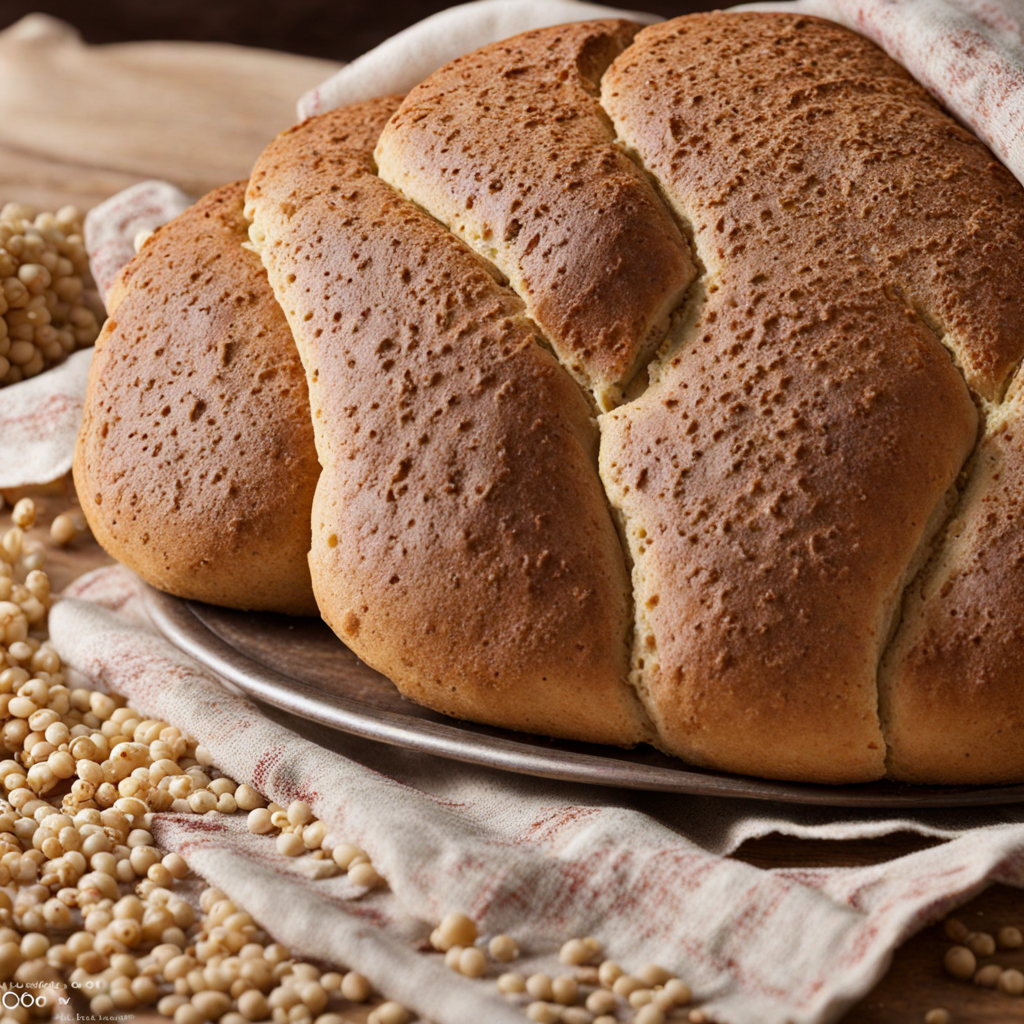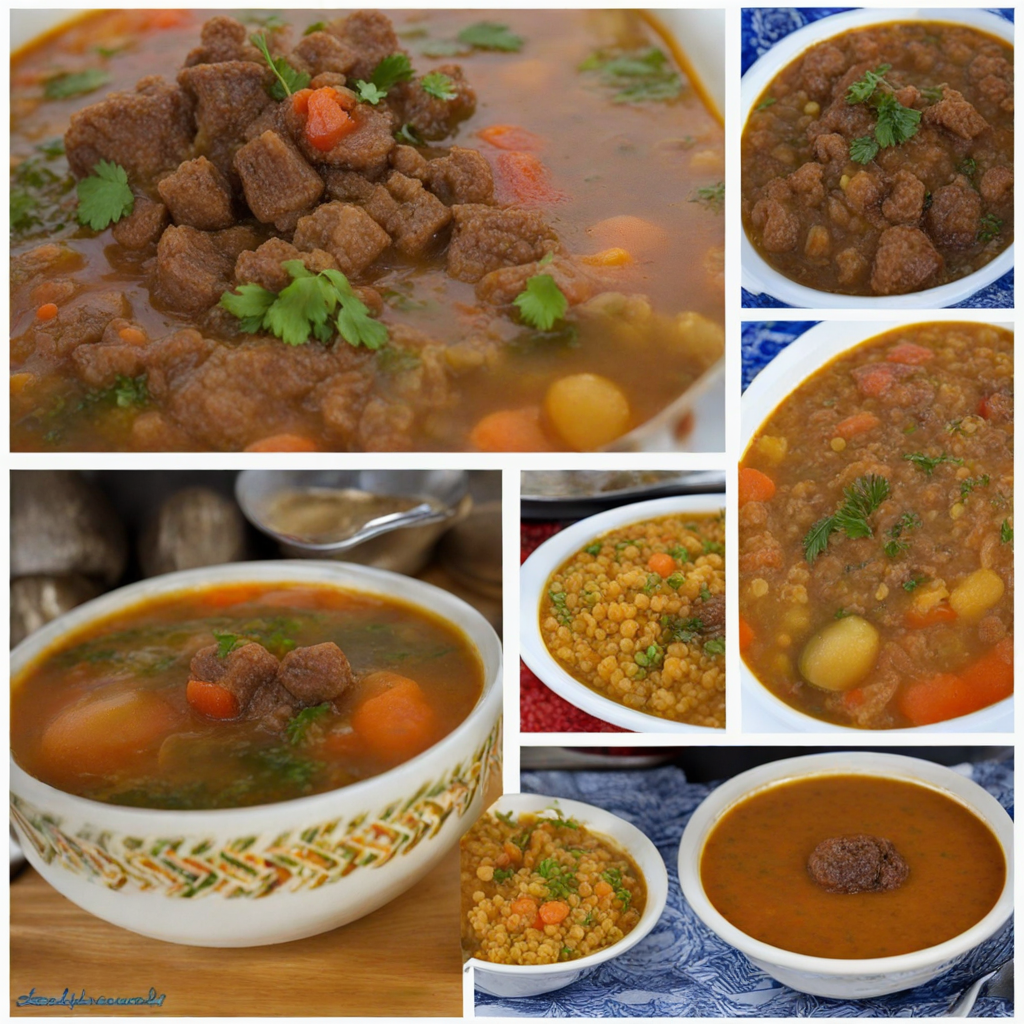Sudanese Coffee
Sudanese Coffee, known locally as "Jebena," is a traditional beverage that transcends mere refreshment; it is a cultural ritual steeped in history and community. The preparation of this coffee is an art form, where green coffee beans are first roasted in a pan over an open flame until they reach a deep, rich brown hue. The roasting process releases aromatic oils, infusing the air with a nutty, earthy fragrance that hints at the robust flavor to come. Once roasted, the beans are ground into a fine powder and brewed in a unique vessel called a Jebena, typically made from clay or metal, which allows for slow brewing and enhances the coffee's complex flavor profile. Upon serving, Sudanese Coffee boasts a distinctive flavor that blends the bitterness of the coffee with subtle hints of sweetness, often enhanced by the addition of spices such as cardamom or cinnamon. This aromatic infusion creates a warm, inviting cup that is both invigorating and comforting. The coffee is traditionally served in small cups, promoting a slow sipping experience that encourages conversation and connection among those gathered. Each sip reveals layers of flavor, making it a delightful exploration for the senses. What truly sets Sudanese Coffee apart is the communal aspect of its preparation and consumption. It is often enjoyed during social gatherings, celebrations, or family gatherings, where the act of brewing and sharing coffee becomes a bonding experience. Accompanying the coffee, one might find traditional snacks like dates or nuts, which complement the beverage beautifully. The warmth of the coffee, paired with the warmth of companionship, makes Sudanese Coffee not just a drink but a cherished cultural experience that invites everyone to partake in its rich heritage.
How It Became This Dish
The History of قهوة سودانية: A Journey Through Sudanese Coffee Culture #### Origins: The Roots of قهوة سودانية The story of قهوة سودانية (Sudanese coffee) begins in the heart of Africa, where coffee has been cultivated and consumed for centuries. While the coffee plant, Coffea arabica, is believed to have originated in the Ethiopian highlands, Sudan has played a significant role in the history and development of coffee culture in the region. The Sudanese began to engage with coffee during the 15th century, likely influenced by trade routes that connected them to the Arabian Peninsula and North Africa. The first mentions of coffee in Sudan can be traced back to the Sufi mystics who would use the beverage to stay awake during their long nights of prayer and meditation. The beverage was not just a drink; it became a symbol of spiritual awakening and social gathering. It is thought that coffee was originally enjoyed in a stronger form, brewed with spices and herbs, leading to what we now recognize as قهوة سودانية. #### Cultural Significance: More than Just a Beverage In Sudan, قهوة سودانية transcends mere consumption; it embodies a deep cultural significance. Coffee houses, or "qahwa," serve as communal spaces where people gather to share stories, discuss politics, and form social bonds. The coffee-drinking ritual is often accompanied by traditional music and dance, making it a crucial social activity in Sudanese culture. The preparation of قهوة سودانية is an art form in itself. The coffee beans are traditionally roasted in a skillet over an open flame, allowing for a toasty aroma that fills the air. Once roasted, the beans are ground into a fine powder and brewed in a special pot called a "jebena." This pot, often made of clay or metal, has a distinctive shape that aids in the brewing process. The coffee is typically brewed with cardamom, cinnamon, and sometimes cloves, giving it a rich and aromatic flavor that is unique to Sudan. The act of serving قهوة سودانية is steeped in tradition. It is customary for the host to pour the coffee from a height into small cups, creating a dramatic presentation and enhancing the coffee's frothy surface. The first cup is always offered to the most honored guest, symbolizing respect and hospitality. This ritual encapsulates the values of generosity and community that are central to Sudanese society. #### Development Over Time: From Tradition to Modernity The evolution of قهوة سودانية reflects the broader historical changes that have shaped Sudan. During the Ottoman Empire's reign in the region, coffee culture flourished, and the beverage became a staple in both urban and rural settings. The Ottomans introduced elaborate coffeehouses, which became centers of social life in Sudanese cities. The influence of Ottoman coffee culture can still be seen today, as many Sudanese coffee houses maintain the same architectural styles and social functions. The British colonization of Sudan in the 19th and early 20th centuries introduced new methods of coffee production and trade. The British established coffee plantations, and although they primarily focused on exporting coffee, their presence contributed to the spreading of coffee culture in urban areas. This period saw the emergence of coffee as a commercial product, leading to an increase in both local consumption and exportation. Despite the changes brought about by colonialism, the traditional methods of preparing قهوة سودانية remained largely intact. The post-independence era in the 1960s marked a revival of Sudanese pride in its cultural heritage, including its coffee traditions. As the country navigated political upheavals and civil conflicts, coffee became a symbol of resilience and identity. It was during this time that the ritual of coffee preparation became even more significant, serving as a comforting reminder of home and community amidst turmoil. In recent years, there has been a resurgence of interest in قهوة سودانية, driven by a new generation seeking to reconnect with their cultural roots. This has led to the rise of specialty coffee shops that celebrate traditional brewing methods while also incorporating modern trends. Some establishments focus on sourcing high-quality, locally-grown coffee beans, highlighting the unique flavors of Sudanese coffee. This movement has not only revitalized the coffee culture but has also stimulated local economies, providing opportunities for farmers and entrepreneurs. #### The Modern Scene: A Blend of Tradition and Innovation Today, قهوة سودانية is celebrated both within Sudan and in the diaspora, where Sudanese communities have migrated around the world. These communities have brought their coffee traditions with them, establishing coffee shops that cater to both Sudanese and non-Sudanese clientele. This has fostered a greater appreciation for the diverse flavors of Sudanese coffee, as well as its rich cultural history. The contemporary coffee scene in Sudan is characterized by innovation. New techniques and flavors are being introduced, such as cold brews and infusions with local spices. Social media has played a significant role in this evolution, allowing coffee enthusiasts to share their experiences and connect with others who appreciate the art of coffee-making. Despite these modern twists, the foundational aspects of قهوة سودانية remain unchanged. The rituals surrounding its preparation and consumption continue to serve as a bridge between generations, connecting the past with the present. In a rapidly globalizing world, the traditional practices associated with قهوة سودانية stand as a testament to Sudan’s rich cultural heritage. #### Conclusion: A Drink of Unity and Identity In conclusion, قهوة سودانية is not merely a beverage; it encapsulates the essence of Sudanese culture, history, and identity. From its origins intertwined with Sufi spirituality to its role in fostering social bonds and community resilience, coffee serves as a powerful symbol of Sudan. As it continues to evolve in the modern era, قهوة سودانية remains a vital part of Sudanese life, reminding us of the enduring significance of food and drink in shaping cultural identity. Whether shared among friends in a bustling coffee house or enjoyed at home with family, each cup of قهوة سودانية tells a story—one of tradition, community, and the rich tapestry of Sudanese history.
You may like
Discover local flavors from Sudan







